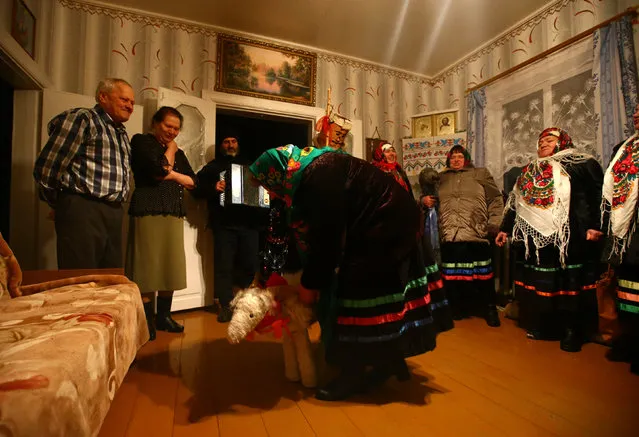
People celebrate the pagan rite called “Kolyadki” and mark the New Year, according to the Julian calendar on January 13, in the village of Vosava, Belarus January 13, 2017. (Photo by Vasily Fedosenko/Reuters)
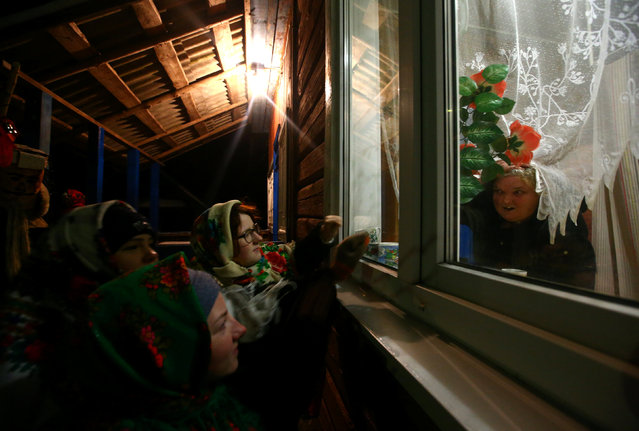
People celebrate the pagan rite called “Kolyadki” and mark the New Year, according to the Julian calendar on January 13, in the village of Vosava, Belarus January 13, 2017. (Photo by Vasily Fedosenko/Reuters)
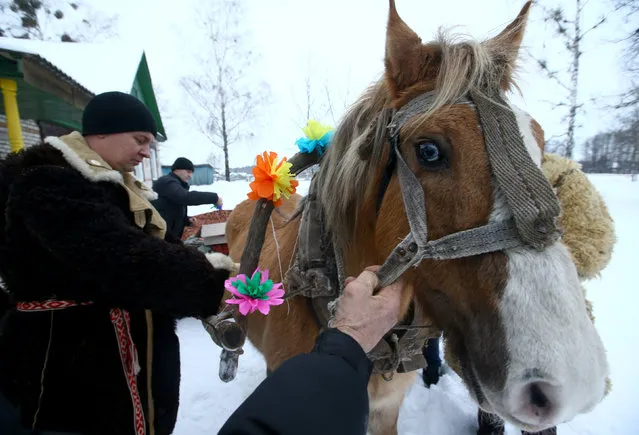
Men prepare a horse and a sleigh to celebrate the pagan rite called “Kolyadki” and mark the New Year, according to the Julian calendar on January 13, in the village of Vosava, Belarus January 13, 2017. (Photo by Vasily Fedosenko/Reuters)
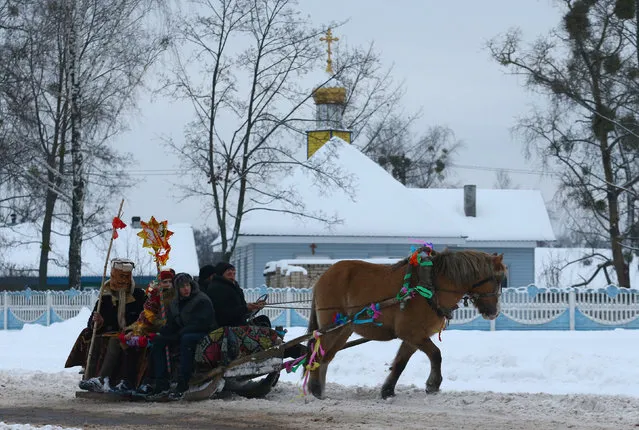
People celebrate the pagan rite called “Kolyadki” and mark the New Year, according to the Julian calendar on January 13, in the village of Vosava, Belarus January 13, 2017. (Photo by Vasily Fedosenko/Reuters)
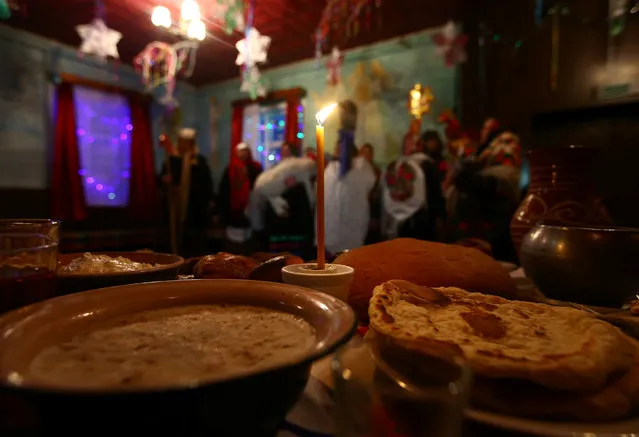
A candle and food are seen on a table as people celebrate the pagan rite called “Kolyadki” and mark the New Year, according to the Julian calendar on January 13, in the village of Vosava, Belarus January 13, 2017. (Photo by Vasily Fedosenko/Reuters)
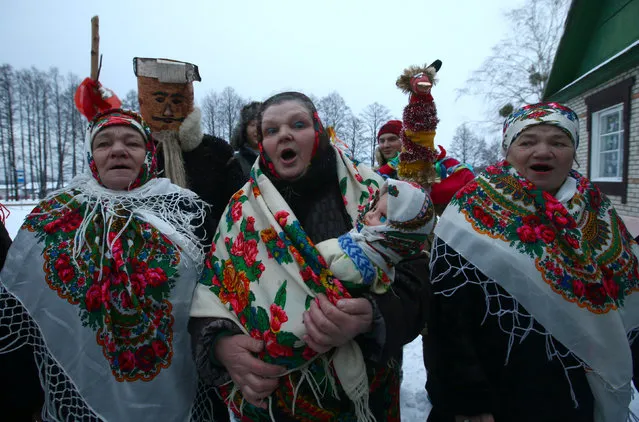
People celebrate the pagan rite called “Kolyadki” and mark the New Year, according to the Julian calendar on January 13, in the village of Vosava, Belarus January 13, 2017. (Photo by Vasily Fedosenko/Reuters)
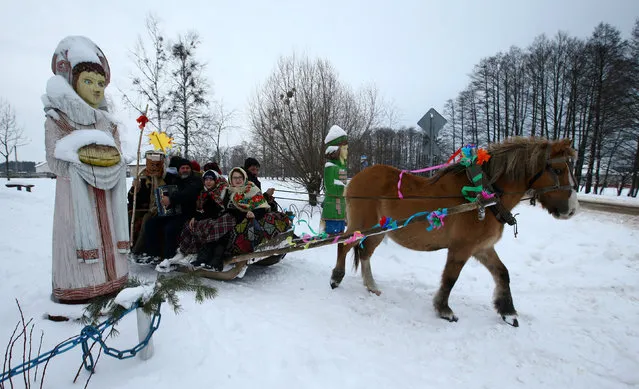
People celebrate the pagan rite called “Kolyadki” and mark the New Year, according to the Julian calendar on January 13, in the village of Vosava, Belarus January 13, 2017. (Photo by Vasily Fedosenko/Reuters)
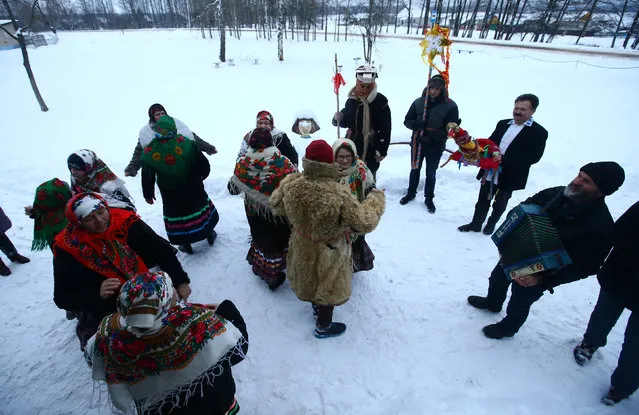
People celebrate the pagan rite called “Kolyadki” and mark the New Year, according to the Julian calendar on January 13, in the village of Vosava, Belarus January 13, 2017. (Photo by Vasily Fedosenko/Reuters)
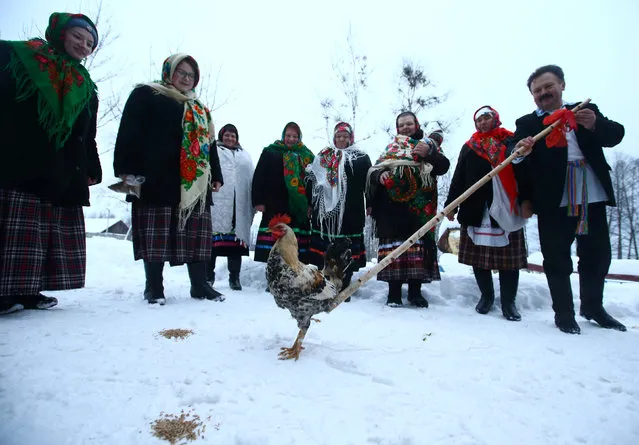
People celebrate the pagan rite called “Kolyadki” and mark the New Year, according to the Julian calendar on January 13, in the village of Vosava, Belarus January 13, 2017. (Photo by Vasily Fedosenko/Reuters)
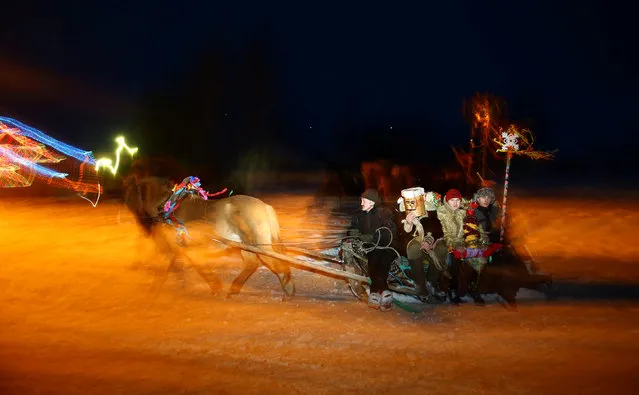
People celebrate the pagan rite called “Kolyadki” and mark the New Year, according to the Julian calendar on January 13, in the village of Vosava, Belarus January 13, 2017. (Photo by Vasily Fedosenko/Reuters)
15 Jan 2017 10:23:00,
post received
0 comments
